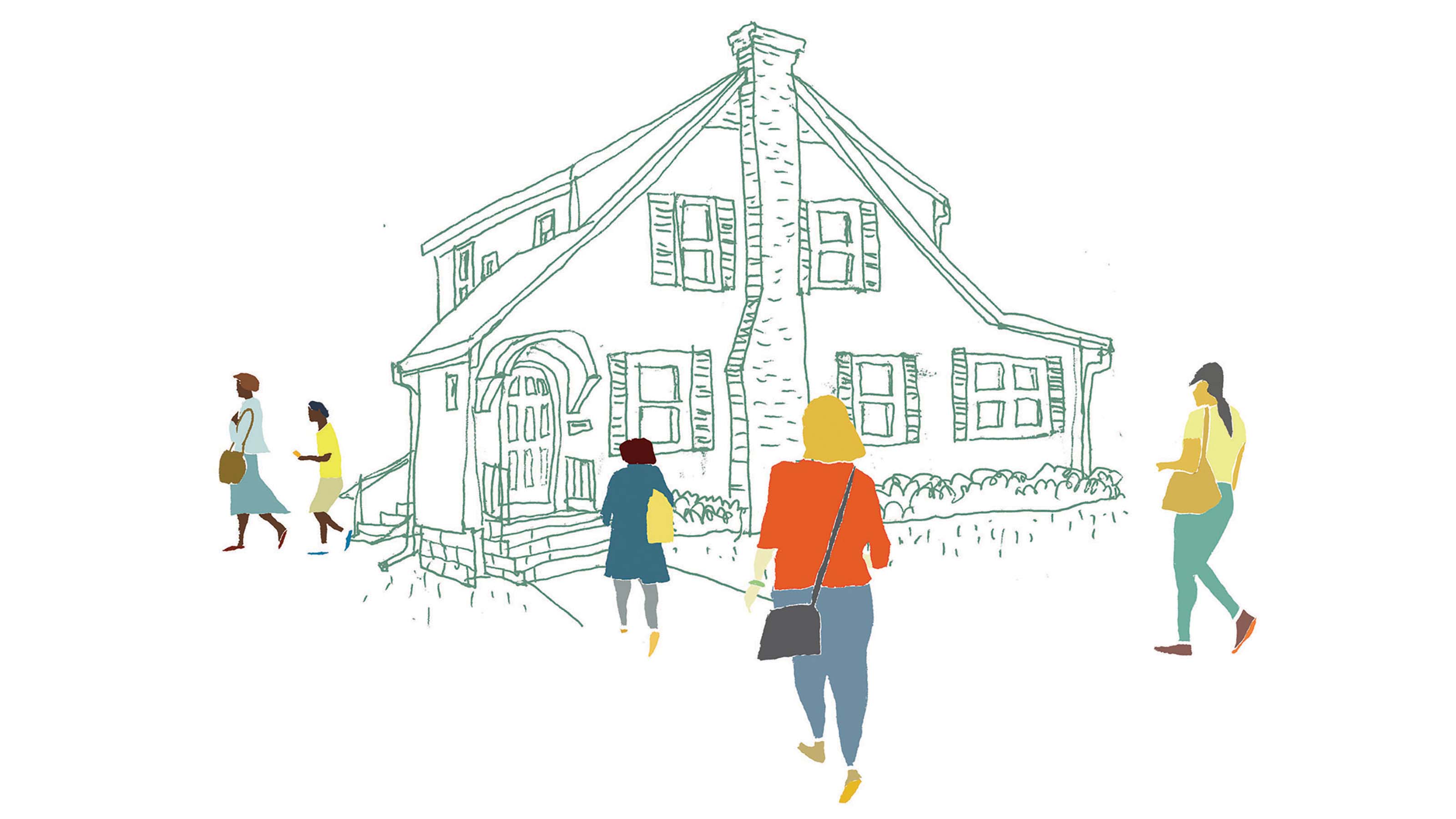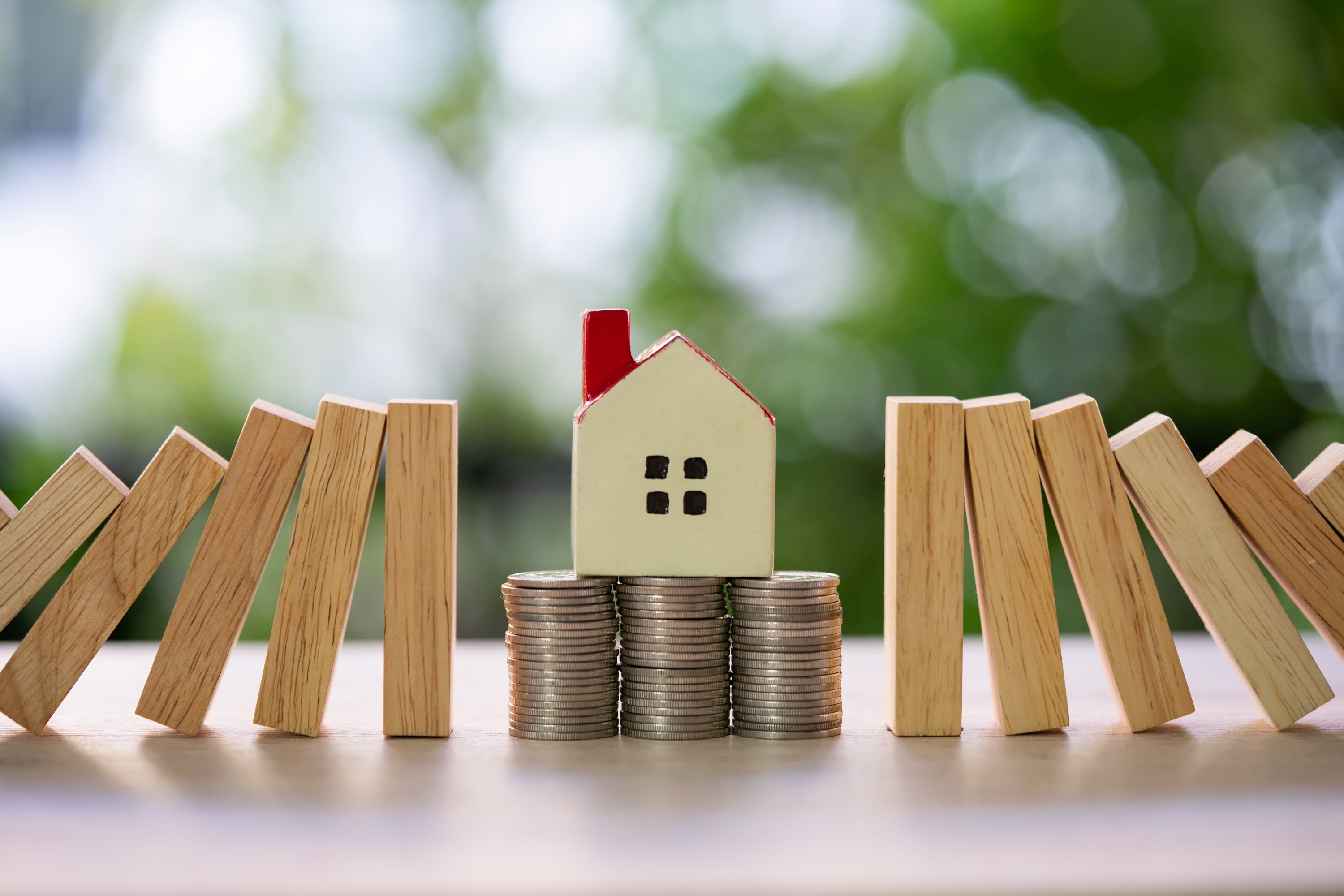How Much Will Home Prices Continue to Rise in 2022?
It’s still a seller’s market, but higher mortgage rates will slow the torrid price increases. Know how to be a smart buyer or seller in these conditions.


Profit and prosper with the best of Kiplinger's advice on investing, taxes, retirement, personal finance and much more. Delivered daily. Enter your email in the box and click Sign Me Up.
You are now subscribed
Your newsletter sign-up was successful
Want to add more newsletters?

Delivered daily
Kiplinger Today
Profit and prosper with the best of Kiplinger's advice on investing, taxes, retirement, personal finance and much more delivered daily. Smart money moves start here.

Sent five days a week
Kiplinger A Step Ahead
Get practical help to make better financial decisions in your everyday life, from spending to savings on top deals.

Delivered daily
Kiplinger Closing Bell
Get today's biggest financial and investing headlines delivered to your inbox every day the U.S. stock market is open.

Sent twice a week
Kiplinger Adviser Intel
Financial pros across the country share best practices and fresh tactics to preserve and grow your wealth.

Delivered weekly
Kiplinger Tax Tips
Trim your federal and state tax bills with practical tax-planning and tax-cutting strategies.

Sent twice a week
Kiplinger Retirement Tips
Your twice-a-week guide to planning and enjoying a financially secure and richly rewarding retirement

Sent bimonthly.
Kiplinger Adviser Angle
Insights for advisers, wealth managers and other financial professionals.

Sent twice a week
Kiplinger Investing Weekly
Your twice-a-week roundup of promising stocks, funds, companies and industries you should consider, ones you should avoid, and why.

Sent weekly for six weeks
Kiplinger Invest for Retirement
Your step-by-step six-part series on how to invest for retirement, from devising a successful strategy to exactly which investments to choose.
After watching four homes go to competing bidders over the course of seven frustrating months, Shubham Nath and Ankur Srivastava finally nabbed a four-bedroom house in Warren, N.J., last June. The couple pounced on the property when it hit the market. “We saw the home on a Saturday, looked at it a second time that Sunday and made an offer Sunday night,” says Nath. And this time they were prepared to best the seven other bidders: They offered about $60,000 above the home’s $849,000 list price, plus a 2.5-month closing period so that the seller would have plenty of time to pack up and move. And when the property appraised for $7,000 below the price they had agreed upon in the purchase contract, the couple paid for the appraisal gap. “We jumped through a lot of hoops,” Nath says.

On the bright side, the house, about 35 miles west of New York City, has ample space for home offices for both Nath, 39, a data analyst, and Srivastava, 42, a software engineer. The basement has plenty of room for their 9-year-old daughter’s doll house and Lego projects. To sweeten the deal, they snagged a 30-year fixed-rate mortgage with a 2.95% interest rate. And they had no trouble selling the 1,500-square-foot townhome they were living in.
2021's red-hot market
With record-low mortgage rates, savings accounts still plump with stimulus checks and a healthy increase in wages, millions of home buyers flooded the housing market last year. That surge in demand, coupled with the lowest home supply in more than two decades, sent U.S. home sale prices to stratospheric highs.
From just $107.88 $24.99 for Kiplinger Personal Finance
Become a smarter, better informed investor. Subscribe from just $107.88 $24.99, plus get up to 4 Special Issues

Sign up for Kiplinger’s Free Newsletters
Profit and prosper with the best of expert advice on investing, taxes, retirement, personal finance and more - straight to your e-mail.
Profit and prosper with the best of expert advice - straight to your e-mail.
Median existing-home sale prices rose 14.6% in 2021, according to the National Association of Realtors. Sale prices reached an all-time high of $361,700 by the end of December, a $46,000 gain compared with the previous year. Among the 50 largest U.S. metro areas, Austin, Phoenix and Las Vegas saw the biggest home price gains last year.
At the end of December, the number of unsold existing homes nationwide fell to a record low of 910,000. That equated to just 1.8 months’ worth of home inventory, making this market much more favorable to sellers than buyers. (A market balanced between buyers and sellers has four to six months of inventory.) Homes also sold at warp speed—it took an average of only 19 days for a listing to go under contract in December.
“Millions of people rushed to buy homes last year to take advantage of low mortgage rates,” says Nadia Evangelou, senior economist and director of forecasting at the NAR. Bond purchases by the Federal Reserve to stimulate the economy kept mortgage rates below 3% for most of 2021.
In addition, “We had a robust economy that created a ton of jobs last year,” says Frank Nothaft, chief economist at CoreLogic. And pay increases gave many home buyers more spending power.
2022 home price rises may slow
Most real estate economists expect the torrid home price growth to slow this year. Danielle Hale, Realtor.com’s chief economist, predicts U.S. home prices will grow 2.9%. “A big part of why we expect home prices to slow down is because we expect mortgage rates will rise, and higher mortgage rates change how aggressive buyers can be with their offers,” Hale says.
Redfin also predicts that the rise in home prices will slow but still sees a gain of 7% for the year. The NAR and Corelogic are also more bullish than Realtor.com, predicting an annual home price increase of 5.7% and 6%, respectively.
The bad news? “Higher prices and mortgage rates will continue to erode affordability for prospective home buyers who are already at the margin of whether they can afford to buy a home,” says Nothaft.
In many markets, especially where home prices have exploded during the pandemic, first-time home buyers are having a tough time qualifying for a home purchase. For example, Boise, Idaho’s median price for an existing home was about $474,000 in December, about 10 times higher than the city’s median income. In Phoenix, the median sale price for an existing home hit $446,000 in December, up 26% from December 2020—a challenge for first-time buyers earning the city’s median income of $57,500. Rust Belt cities, such as Columbus, Ohio, Harrisburg, Pa., and Indianapolis, offer buyers more-affordable homes; the median home sale price in all three cities is still less than $275,000.
Demand in urban areas could pick up again this year following a decline during the peak of the pandemic, when many city dwellers moved to the suburbs in search of larger homes. As people in the ’burbs gravitate back to cities, that should bolster condo sales as well. Even though the volume of condo sales was still slow at the end of 2021, the median condo price in the U.S. was $305,100 in December, an annual increase of 11.9%.
After years of underbuilding, demand for newly built homes will continue to outpace inventory. Building material shortages are contributing to the price increase of new homes. The median sale price of a new home was $377,700 in December, up from $365,300 in December 2020.
Tips for buyers
A tap on the brakes for home price growth will start to balance out the market, but sellers will still have the upper hand this year. These strategies can help you navigate today’s market:
Set realistic expectations
In a time when home prices keep going up, you may have to raise your budget or broaden your home search to find a home that you can afford.
That’s what happened with Nath and Srivastava, the couple who purchased a home in New Jersey. “We started with a budget of $700,000, but after getting outbid so many times, we had to increase our price range” to about $900,000, Nath says.
First-time buyers Shelby Brooks and DeShawna Hill, both 30, had to rethink location. “We originally wanted to live in a town closer to Ann Arbor, but we couldn’t find much in our price range,” says Brooks, an account manager at a medical equipment repair company. After changing gears, they bought a three-bedroom house that fit their budget in Taylor, Mich., which is about 20 minutes outside Detroit. “The house has a two-car garage and a spacious backyard, which is great for our two dogs,” Brooks says.
Be prepared to offer more than list price
With homes selling so quickly and with sellers receiving multiple offers, “buyers often have to be bold and offer significantly above list price to have their offer chosen,” says Mark J. Schmidt, a real estate broker at RE/MAX Country in central New Jersey. Bidding wars are routine now. Indeed, 41% of homes sold above list price in the four-week period ending January 9, according to Redfin.
Brianna and Micah Leonhard were fortunately on the receiving end when they sold their home in Atlanta last April. “We received six offers within 24 hours, and five of six were above list price,” says Brianna, 31, the founder of Third Row Adventures, a travel blog.
But most sellers turn around and buy another home. And if you’re the kind of buyer who likes making lowball offers, be prepared for rejection. “We put offers on 15 homes before we found the house that we purchased,” says Brianna. Each offer was turned down because the house had just gone under contract or the seller received a higher offer.
Get preapproved for a mortgage before you start looking at homes
A mortgage preapproval is a written statement from a lender showing that you’ve qualified for a mortgage up to a certain amount. “Preapproval can take a day or two, or longer depending on the lender,” says Bryce Kubecka, a real estate agent at Compass in Philadelphia. Another reason to get preapproved before you begin viewing homes: “Preapproval can be a reality check in terms of what you can afford,” Realtor.com’s Hale says.
Planning to make an all-cash offer? “Be ready to provide proof of funds, such as a bank statement, when you make an offer,” says Lee Goldberg, a real estate agent at BHHS Fox & Roach in Cherry Hill, N.J. In December, all-cash home sales accounted for 23% of transactions.
Be careful with “love” letters
Writing a letter to a seller explaining why purchasing their home is important to you can tug on their heartstrings. But Steven Weisman, a real estate agent at Compass in the Washington, D.C., metro area, warns that love letters can violate Fair Housing laws that govern discrimination based on race, religion and other factors. In fact, Oregon banned real estate love letters this year for that very reason. If you want to write a heartfelt note to the seller, have your agent look it over before attaching it to your offer.
Don’t waive a home inspection
Some buyers are waiving their right to home inspections to make their offers more attractive to sellers, but Goldberg says that can have serious blowback. “I personally would never waive a home inspection because there could be huge problems lurking in a home that you can’t see with the naked eye,” she says. Weisman agrees: “The only time I advise buyers to completely waive a home inspection contingency is if they’re going to tear the house down and build a new home,” he says.
Goldberg recommends an alternative strategy: Tell the sellers you won’t make home repair requests unless they exceed a certain amount of money or unless they pose a structural, safety or environmental issue.
Get creative with your offer
In addition to paying full list price for their home, the Leonhards covered the seller’s closing costs. (A seller’s closing fees are usually 5% to 10% of a home’s sale price.) Brooks and Hill offered a rent-back agreement, allowing the seller to stay in the house for 60 days after settlement.
Increasing your earnest money deposit can also make your offer stand out, because it proves you have more skin in the game. A standard earnest money deposit is 1% to 3% of a home’s sales price, so consider bumping yours up to 5% or 7%. If the seller is looking for a quick closing, you can also shorten home inspection time frames, Weisman says.
Tips for sellers
While it’s a seller’s market, sellers should still take a few important steps to fetch top dollar for their home and sell their property quickly:
Don’t overprice your home
Even though the market is superheated, you have to be careful about how you price your home. “I’ve seen sellers who get too ambitious with their list price, and then their home just sits on the market for weeks without receiving a single offer,” says Schmidt.
The best approach is to list your home at market value based on comparable properties (“comps”), says Christopher McGuire, a real estate agent at Compass in Dallas. “If there aren’t a lot of other options in your area, you can price a bit higher,” he says. Then, let the market provide feedback. “If you get 30 showings in the first week but don’t receive an offer, there’s something fundamentally wrong with either your property or your list price,” he adds.
Make your listing photos shine
Staging helps buyers visualize your house as their future home. It can also make your home’s listing photos more appealing, which is important in today’s digital home-buying age, when many buyers start their home search by looking at properties online. Staging usually helps you sell your home faster and for more money.
McGuire is a fan of “hybrid staging,” which he says entails rearranging existing furniture while bringing in a few accent pieces. And he doesn’t stage the entire house for his listings. “I focus on the primary bedroom, the living room, the kitchen, and the dining room,” he says. He also stages outdoor areas with outdoor furniture “if there’s a nice patio or deck.”
Decluttering is a must. “Buyers don’t want to walk around your home and see a dozen photos of you and your spouse kissing on your wedding day,” McGuire says. You may need to rent a storage unit to hold your belongings while your home is being sold. Storage units cost roughly $100 to $300 per month, depending on size and availability, according to Move.org.
When your home is camera-ready, hire a professional photographer to take pictures for your listing. Real estate photographers know the tricks of the trade, such as where to position the camera for the best lighting.
Amp up your marketing
Before your home hits the market, your agent should be spreading the word about your property to other agents in their sphere. That will help build buzz and may even lead to requests for private showings before your house is listed.
Marketing your home on social media, including Facebook and Instagram, can increase your listing’s exposure. Trying to maximize your home’s exposure to first-time buyers? Try TikTok. Because TikTok lends itself well to short video clips, Schmidt suggests recording a video that highlights one or two unique features about your home instead of filming a walkthrough of the entire place.
Consider including a 3-D walking tour of your home with your online listing. From March 2020 through February 2021, for-sale listings on Zillow with a 3-D tour received 65% more views than listings without one.
FORECAST
Mortgage Rates Are Headed Higher
Yields on government bonds, including mortgage-backed securities, are ratcheting upward this year. That means mortgage rates are headed higher, too.
Chalk it up to a strong economy, including a persistently high inflation rate. That has led the Federal Reserve to commit to short-term rate hikes and to phase out its bond-buying stimulus efforts.
“We think 30-year mortgage rates will reach 4% by the end of 2022,” says Mike Fratantoni, chief economist at the Mortgage Bankers Association. (In early February, the average 30-year fixed rate was 3.55%, according to Freddie Mac.) Kiplinger also forecasts a 30-year fixed rate of 4% by year-end, with the 15-year loan at 3.3%.
As rates tick up, some house hunters may shelve their home-buying plans, says Nadia Evangelou, senior economist and director of forecasting at the National Association of Realtors. If you’re thinking about buying a home and are looking to lock in the lowest mortgage rate possible, you’ll want to buy sooner rather than later.
One plus for borrowers: For 2022, the standard conforming limit for single-unit properties is $647,200, an increase of nearly $100,000 from the 2021 cap. In areas with a high cost of living, the loan limits are higher—as much as $970,800 for single-unit homes in places including Alaska, Hawaii, Washington, D.C., and certain counties in California, Maryland, New Jersey, New York and Virginia. Conforming loans are the most common type of mortgage, and they often have lower rates than other loans.
When getting preapproved for a mortgage, ask for quotes from at least three lenders to find the best interest rate and loan terms. With so many buyers searching for homes these days, “it is an extraordinarily competitive market for mortgage lenders,” Fratantoni says. “Use that strong competition to your advantage as you’re shopping for a loan.”
.
Profit and prosper with the best of Kiplinger's advice on investing, taxes, retirement, personal finance and much more. Delivered daily. Enter your email in the box and click Sign Me Up.

Daniel Bortz is the Personal Finance Editor at AARP and is based in Arlington, Va. His freelance work has been published by The New York Times, The Washington Post, Consumer Reports, Newsweek, and Money magazine, among others.
-
 The New Reality for Entertainment
The New Reality for EntertainmentThe Kiplinger Letter The entertainment industry is shifting as movie and TV companies face fierce competition, fight for attention and cope with artificial intelligence.
-
 Stocks Sink With Alphabet, Bitcoin: Stock Market Today
Stocks Sink With Alphabet, Bitcoin: Stock Market TodayA dismal round of jobs data did little to lift sentiment on Thursday.
-
 Betting on Super Bowl 2026? New IRS Tax Changes Could Cost You
Betting on Super Bowl 2026? New IRS Tax Changes Could Cost YouTaxable Income When Super Bowl LX hype fades, some fans may be surprised to learn that sports betting tax rules have shifted.
-
 Could Tax Savings Make a 50-Year Mortgage Worth It?
Could Tax Savings Make a 50-Year Mortgage Worth It?Buying a Home The 50-year mortgage proposal by Trump aims to address the housing affordability crisis with lower monthly mortgage payments. But what does that mean for your taxes?
-
 15 Cheapest Small Towns to Live In
15 Cheapest Small Towns to Live InThe cheapest small towns might not be for everyone, but their charms can make them the best places to live for plenty of folks.
-
 Before Buying Your First Home, Get These Three Ducks in a Row
Before Buying Your First Home, Get These Three Ducks in a RowWith mortgage rates higher than we're used to, making sure you can comfortably afford to buy your first home is more important than ever.
-
 How to Search For Foreclosures Near You: Best Websites for Listings
How to Search For Foreclosures Near You: Best Websites for ListingsMaking Your Money Last Searching for a foreclosed home? These top-rated foreclosure websites — including free, paid and government options — can help you find listings near you.
-
 Luxury Home Prices Rise as the Rich Dodge High Mortgage Rates
Luxury Home Prices Rise as the Rich Dodge High Mortgage RatesLuxury home prices rose 9% to the highest third-quarter level on record, Redfin reports, growing nearly three times faster than non-luxury prices.
-
 Four Tips for Renting Out Your Home on Airbnb
Four Tips for Renting Out Your Home on Airbnbreal estate Here's what you should know before listing your home on Airbnb.
-
 Is Home Insurance Required? Not Necessarily, But That Doesn't Mean You Should Drop It
Is Home Insurance Required? Not Necessarily, But That Doesn't Mean You Should Drop ItHome insurance is required by most mortgage lenders. But even if your home is paid off, does it make financial sense to drop coverage?
-
 5 Ways to Shop for a Low Mortgage Rate
5 Ways to Shop for a Low Mortgage RateBecoming a Homeowner Mortgage rates are high this year, but you can still find an affordable loan with these tips.